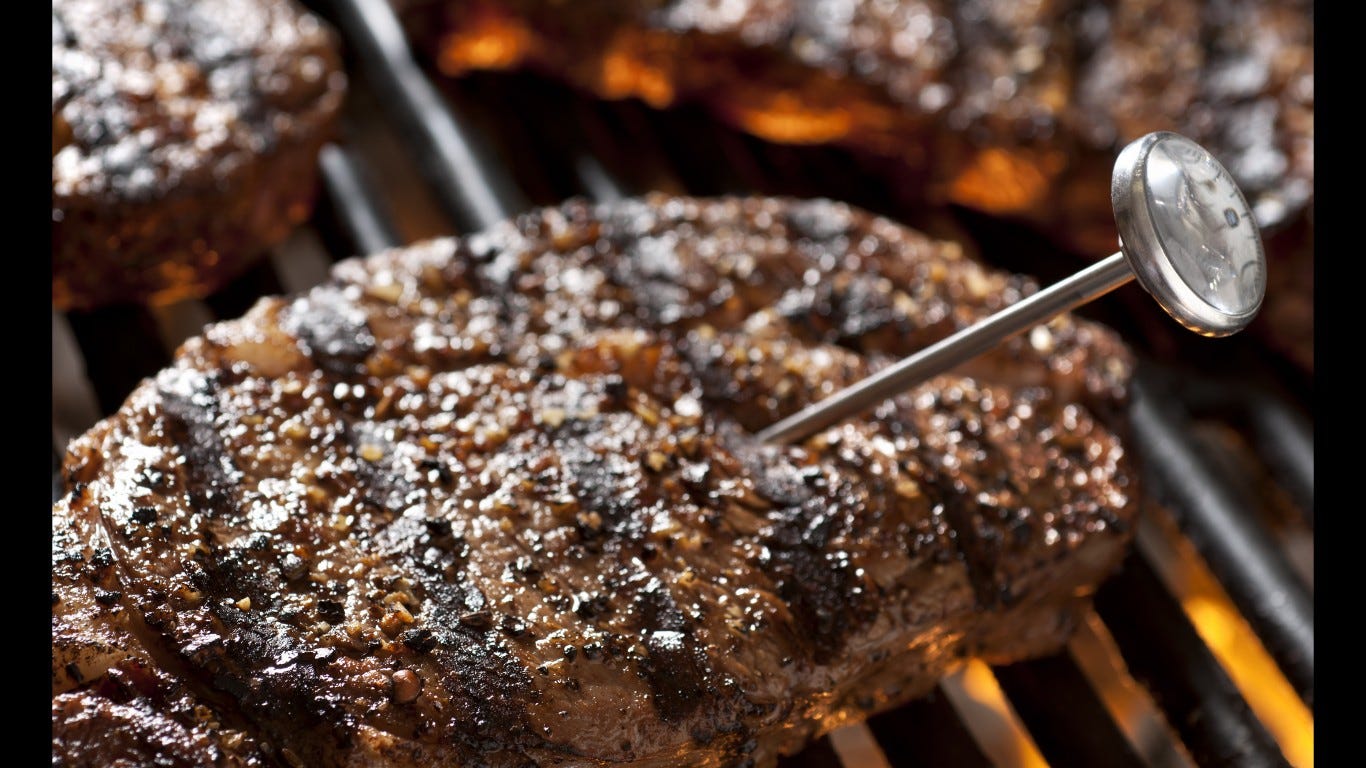LATEST FINANCIAL NEWS
You’re grilling your burgers wrong
With many folks cranking up the sizzle on the celebration of summertime coming to an end this Labor Day weekend, it’s a fine time for a refresher on good grilling practices.
Dealing with raw meat can be tricky, and cooking it improperly can be deadly.
“Cooking food thoroughly and handling it correctly is critically important,” said Carmen Rottenberg, acting deputy undersecretary for the USDA’s Office for Food Safety and administrator of the USDA’s Food Safety and Inspection Service. “The food produced is not sterile. … People want to cook raw food and prepare it at home. If you prepare it at home, you have to know there are some risks associated with it.”
When grilling raw meat, there are multiple steps you can take to avoid getting food poisoning, especially with E. coli, which can cause dehydration, bloody diarrhea and abdominal cramps three to four days after exposure – and potentially kidney failure in children under 5 years old and older adults, the CDC says.
Are they open on Labor Day? The stores and restaurants open include Walmart, Aldi, Chick-fil-A and more
Grilling safety tips for your cookout
Cook meats to a safe temperature. Use a food thermometer to check that your burgers or steaks have been cooked to a temperature that will help prevent foodborne illnesses from bacteria such as E. coli. Ground beef and pork should be cooked to an internal temperature of at least 160°F (70˚C). Steaks and roasts should be cooked to at least 145°F (62.6˚C) and allow to rest for 3 minutes after removal from the grill. The U.S. Department of Agriculture has a chart showing the safe cooking temperatures for foods.
Marinated no-no. Don’t reuse marinades that have been used with raw meat.
For kabobs, keep meat and vegetables separate. Put peppers, onions and carrots on separate sticks because veggies cook faster than the meat and you don’t want your meat undercooked.
Don’t use the same plates or utensils. Whatever dish you bring the meats to the grill on should not be used to take them up, unless it’s cleaned thoroughly. That’s because bacteria from the raw meat can spread to the cooked meat. Have a clean plate or platter and clean utensils to take up food.
Practice cleanliness. You should wash your hands after preparing meats. Also wash your kitchen counter, cutting boards and utensils after they are used on raw meats.
Beyond meat. Keep chilled certain salads or desserts that were served cold. After being served, cold dishes should not stay outside for more than two hours – and just one hour if it is warmer than 90 degrees outside. Beyond that, toss it.
Special attention needed. Some are more likely to succumb to food poisoning from E. coli; children and newborns, pregnant women, the elderly, and those with weak immune systems are among those more susceptible.
“Although E. coli illnesses linked to beef, specifically ground beef hamburger, have been on a downward trend for decades, proper hand-washing is still important after handling raw meat and, most important, cooking hamburgers well-done to at least 160 degrees is key,” said Bill Marler, a food safety attorney and publisher of Food Safety News.
Contributing: Zlati Meyer









